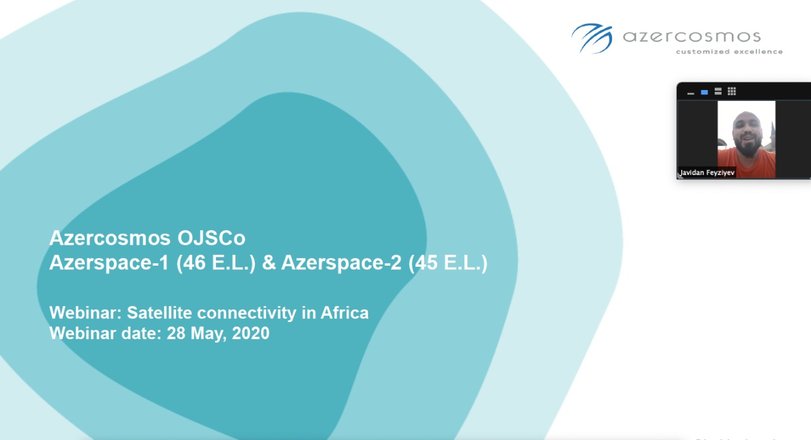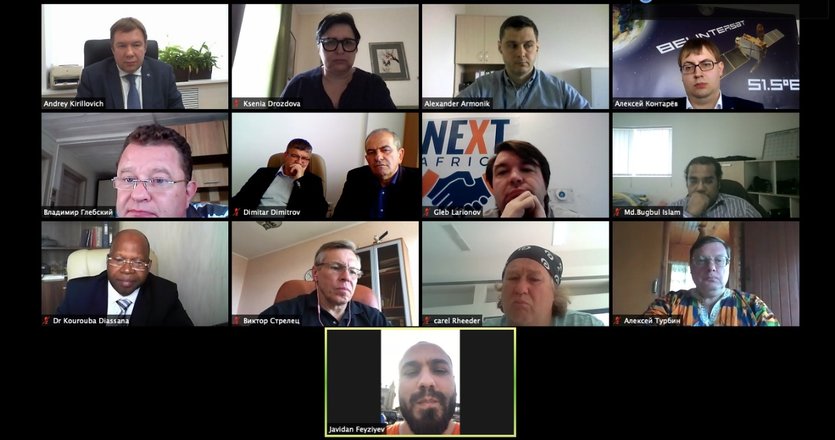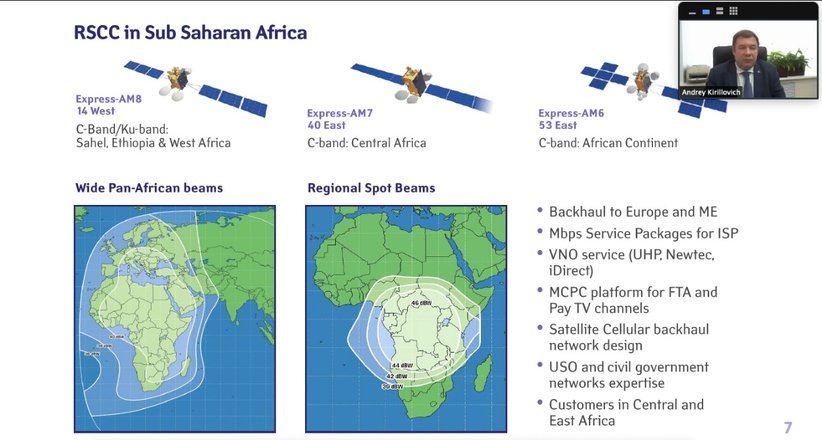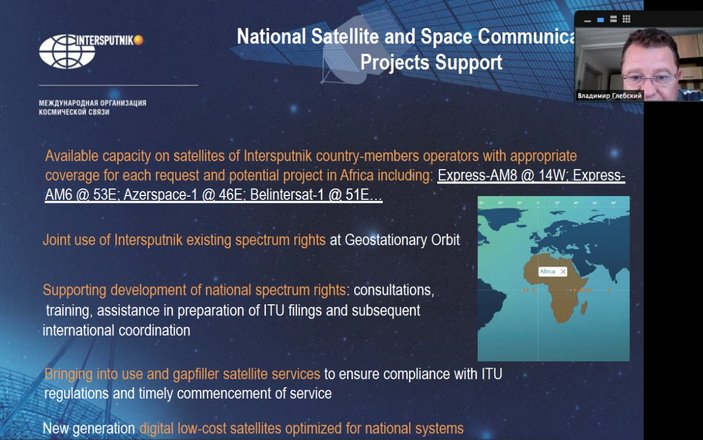RSCC and Intersputnik IOSC Operations Committee host first international webinar on satellite communications development in Africa
This online event was attended by more than 50 participants from Russia, Belarus, Azerbaijan, USA, UK, Bulgaria, Hungary, Angola, South Africa, Mali and other countries of the African region. Speakers of the webinar were the leading experts representing satellite communications operators: Azercosmos (Azerbaijan), Belintersat (Belarus), Intersputnik (international organization headquartered in Russia), and RSCC (Russia).
The webinar was opened by Ksenia Drozdova, RSCC Deputy Director General for Business Development and Chairwoman of Intersputnik IOSC Operations Committee, who addressed the participants with a welcoming speech. She thanked all participants for supporting the joint initiative of RSCC and Intersputnik IOSC in organizing the webinar. Ksenia Drozdova emphasized the importance of such events for the development of partnership business liaisons in the international operators’ community, inter alia within Intersputnik IOSC.
An update of the current situation on the African satellite market was presented by Andrei Kirillovich, Director of the Department of Integration Services and Projects of RSCC. He spoke about modern solutions in the deployment of satellite communications in the region on the basis of RSCC space infrastructure. Presentations of satellite communication projects in Africa were also shown by Javidan Feyziyev (Azercosmos), Alexey Kontarev (Belintersat) and Vladimir Glebsky (Intersutnik IOSC).
The webinar included a panel discussion where participants discussed the opportunities and benefits of conventional geostationary constellations in C/Ku bands for countries of the African continent in comparison to other competitive modern technologies. Subjects of discussion also were bridging the digital gap and raising accessibility of state-of-the-art space technologies, partnership of ground-based networks and satellite operators, issues of development of 5G in C-band in Africa, feasibility of developing mega constellations in low orbits, and the role of satellites in the future telecom landscape of Africa. In the interactive discussion, together with the audience, the experts raised another topical matter: the impact of the COVID-19 global pandemic on the forecasts of development of the satellite service market in Africa in the nearest years. The participants agreed that, unlike other sectors of the economy, the future of the telecom and satellite market will be positive in the long term.



